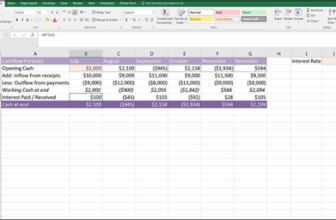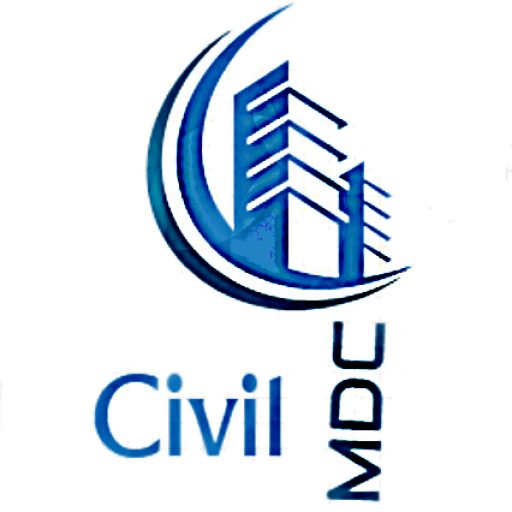
Interviewing tips
Once you move to the next step in your job search and land the interview for your dream job in business intelligence, it is important for you to ace the interview. Succeeding in an interview is all about proper preparation.
To this end, make sure you do the following prior to any interview:
-
Research: While you may have researched the companies you wish to work for as part of your job search strategy, it is time to go a level deeper in your research for the particular organization with which you are interviewing. Th s means researching the benefits the organization provides as well as the organization’s leadership. Try to learn as much as you can about the organization’s operations and the industry in which
the organization operates. Expand your research to include current events and recent news headlines on the internet and in business journals. Use this research strategically during the interview to connect your skills and experience to the job description and the overall goals and needs of the organization.
-
Practice: Practice your answers to common interview questions. Recruit a friend or colleague to perform a mock interview. By practicing interview questions and practicing interviewing, you gain confidence in your ability to answer questions coherently and effectively. You should have stock answers for common questions, such as if you are willing to travel, explaining gaps in your résumé, your qualities as a leader, why you are interested in the position, and why you are looking to change roles/jobs. Finally, be prepared for and practice answering a technical question that
you do not know the answer to. This includes the ability to confidently state that you do not know the answer to the question and a detailed explanation regarding how you would approach researching and finding the answer.
- Preparation: Make sure that you are prepared for your interview. This means picking out clothes and shoes for your interview well ahead of time. Make certain that you have an interview kit that includes extra copies of your résumé, a notepad, a pen, and possibly an umbrella. Write down questions for the interviewer and have them ready during the interview. Almost all interviews include the interviewer asking the interviewee if they have any questions. Not having questions ready can make you appear apathetic toward the position.
If you have to drive to the interview, make sure that you know the route and how much time is required for travel. Plan for extra time in the event of an accident or traffic jam. If possible, drive the route at least once prior to the interview,
understand where to park, and how long and which route to take from the parking location to the interview location. Remember, being on time to an interview means being early.
If you are interviewing virtually, ensure that you have any and all technology set up, configured, and tested prior to the interview. For example, ensure that your camera works, that you have a stable internet connection, and that you are comfortable with the technology being used.
- Stay calm: Stress is one of the most often-cited reasons why interviews are not successful. Researching, practicing, and preparing for an interview helps build your confidence and reduce stress. During the interview, maintain eye contact with the interviewer and make sure to pay close attention to the interviewer’s questions by actively listening to the entire question and only answering it once the interviewer is finished speaking. If you need a minute to compose your thoughts, take a moment to pause and repeat the interviewer’s question back to them to allow yourself time to think and mentally prepare a response. For example, you could say, If I heard you correctly, what you are asking is…
-
Build rapport: Before the interview, write down the interviewer’s name and use their name during the interview. If possible, research the interviewer online and note where they are located and any interests or hobbies they may have. Review any social media posts or other materials on the internet. Use this information during the interview to build rapport and connect on a personal level with your interviewer.
An often-overlooked aspect of building rapport during an interview is being honest. In particular, if you do not know the answer to a technical question, state that you do not currently know the answer and then proceed to explain how you would approach researching and discovering the answer. Be specific in terms of what materials and websites you might use to find the answer.
- Follow-up: Always follow-up an interview with a thank-you note or email reiterating your interest in the position.
Following these interview tips will help make you fully prepared and confident going into, during, and after an interview. Confidence is key to interviewing, and being fully prepared through research, practicing, and preparation aids helps build the confidence necessary for you to ace any interview.
Negotiating benefits and compensation
After a successful interview, any offer of a job provides the opportunity for negotiation of terms that are the most beneficial to you. While the salary is an important component of this negotiation, it is not the only important aspect of a job. It is important to know,
understand, and keep in mind that there are many things that are negotiable in addition to your salary. Other factors include the following:
- Hiring bonus: A hiring bonus is a one-time cash payment made on the first day of employment. If there is a gap between what the market is paying and what the employer is offering, you may be able to convince the employer that you deserve a hiring bonus, particularly if the job has been open a long time and is hard to find skilled candidates.
- Vacation time: Many organizations offer two or three weeks of vacation time. However, negotiating for an extra week of vacation is not uncommon and often granted, especially if you currently have more weeks of vacation with your current employer than are being offered.
- Timing of your first review: Most organizations conduct annual reviews for employees. Negotiating for an early first review, such as after six months, is a reasonable compromise, particularly if the starting salary is less than you desire. An early review provides you the opportunity to prove yourself worthy of additional compensation sooner rather than later.
- Relocation costs: If the job requires you to relocate, most organizations will grant requests to be compensated for the costs of relocation. Do your research so that you understand the full costs of relocating.
-
Flexible work schedule: There are many times where a flexible work schedule is more desirable than a higher salary. This includes the ability to come in early/ late and leave early/late, a work schedule of four 10-hour days, or the ability to
telecommute. With the recent worldwide pandemic, organizations are more likely than ever to grant requests to work remotely.
- Goals and achievement bonuses: Many positions offer annual bonuses or bonuses based on certain achievements. For example, consulting organizations often have a utilization bonus that compensates consultants that work more hours than expected.
- Stock options or units: Organizations that are publicly traded often offer stock to their employees on a regular basis, either in place of or in addition to annual bonuses.
- Retirement benefits: Be certain to understand the pension or matching 401(k) contributions offered by the employer.
- Health and wellness benefits: Organizations offer medical, dental, and vision plans for their employees. The differences in how much you pay for such benefits and the comprehensiveness of those benefits can vary widely between different organizations.
- Insurance programs: Many employers offer basic life, accidental death, and disability insurance for little or no cost to employees. Be certain to understand these benefits and how they might defer or eliminate costs you currently pay for such insurance.
-
Educational reimbursement and training programs: Most organizations have an interest in employees that are well educated and keep up to date with the latest technologies and innovations. To this end, these organizations may
reimburse obtaining advanced degrees or regularly pay for training and obtaining certifications. Certifications and technical training are particularly important for consulting firms, as employing a certain number of individuals with particular training and certifications may be required for maintaining partnerships with firms such as Microsoft, Amazon, and Google.
-
Perks: Make sure to understand any perks associated with the position, such as gym memberships, cellphone reimbursement, reimbursement for travel, or even for costs such as internet service.
When evaluating and comparing any offer, keep in mind the full scope of benefits and compensation being offered and not just the salary. Certain organizations may pay less but make up for this by offering much better non-salary benefit packages. Negotiating favorable benefits can help make up for less salary and promote a better work-life balance. However, at some point, you are going to have to discuss and negotiate the salary being offered.
Negotiating salary
Most people looking for jobs are not skilled negotiators. Conversely, employers tend to have recruiters and hiring managers skilled in negotiation. In order to close this gap in negotiation skills, do the following:
- Research: Use internet websites such as payscale.com, glassdoor.com, and other job search websites to determine average salaries for comparable positions within the local market and with comparably sized organizations. Be prepared with your research when negotiating your salary in order to provide justification for your requested salary.
- Determine your range: You need to settle on two numbers in order to be an effective negotiator of your salary. These two numbers are your ideal salary and the least salary you are willing to settle for. Negotiate to achieve your ideal salary and be prepared to end negotiations if the employer cannot meet your lowest salary figure. However, do not forget about the impact of employment benefits outside of your salary when considering whether to end negotiations.
-
Practice: It can often be beneficial to enlist a friend or colleague to help you practice negotiating. Negotiating is a skill that is acquired, not something that is generally
an innate ability. Thus, practicing negotiating helps you to be more confident and better at dealing with different types of negotiation styles.
-
Be patient: Delay the discussion of salary for as long as possible. Make the employer fall in love with the idea of you being on their team before addressing the subject
of salary. If you make an employer relish the idea of hiring you, they are more agreeable if your salary requirements are more than they were hoping. Wait for the employer to put a number on the table. If the employer asks you how much you require in salary, deflect the question by asking the employer how much is budgeted for the position or what they typically pay for similar positions.
-
Always counter: You should resist the urge to accept the first number given by a recruiter or hiring manager. It is in the best interests of an organization to employ the most skilled individuals possible for the least amount of money. Therefore, it is almost certain that the initial offer is not their best offer. Be prepared to explain the reasons for your counteroffer and why you believe you deserve additional
compensation. Speak honestly and plainly and be confident but not in a demanding way. Be respectful and convey that you appreciate the offer but that you were expecting more.
Negotiating benefits and compensation can be stressful and awkward for many people. By following these negotiation tips, you can be more confi t and less stressed when negotiating with potential employers. Remember that everything is on the table when it comes to the negotiation of benefits and compensation and ensure that you maintain a clear focus on what you will accept and not accept. Always be professional, respectful, and impartial when negotiating compensation and benefits, and do not be offended if the employer resists your counteroffer. Finally, be prepared that potential employers may withdraw an offer of employment if they feel that your demands are excessive.
You should also be prepared to walk away if the employer cannot meet your minimum compensation target.
Negotiating with consulting firms
Negotiating your salary or hourly rate with a consulting firm is a special case. The reason is that while the exact economics of many complex organizations are difficult, if not impossible, to determine, the economics of professional services firms are exceedingly simple and nearly universal. Therefore, by asking a few simple questions and/or making some basic assumptions, it is relatively easy to determine how much you should be paid by a consulting services firm.
First, you should determine whether the position being hired for is a staffing position or a project services position. If the position is for a staffing position, then you have much less negotiating room, as staffing positions generally have clearly stated target rates and staffing work generally has a significantly lower gross margin than project services work. However, the specified target rates are generally provided as a range. That said, generally, the consulting services firm can only negotiate within the boundaries of the specified target rates for the position and only exceed that range in special circumstances.
Second, you should determine whether the position is an hourly position or a full- time (exempt) position. Obviously, this is important when considering vacation and other applicable benefits but is also important for understanding the overhead costs the consulting services firm is likely to incur by employing you. This has a direct impact on how much you can be paid by the consulting services firm. While overhead cost factors vary, a decent estimate is to assume a cost overhead factor of around 1.2 for hourly
positions and 1.4 for salaried positions. The overhead cost factor is simply an easy method of accounting for the costs of benefits, insurance, and other compensation factors over and above an employee’s salary and also covers a proportion of corporate overhead in the form of rent and the overhead cost of non-billable employees, such as managers, recruiters, and other staff.
Next, you need to ask the consulting services firm the following questions:
- What is the typical hourly rate that you charge customers for the types of services I provide?
- What is the expected target percentage utilization for billable employees?
- What is the firm’s target gross margin percentage on consulting services?
If the consulting services firm refuses to answer the last two questions, good assumptions for an average consulting firm are a target utilization percentage of 85% and a target gross margin of around 40

 Because consulting services organizations make money by mostly simply charging a particular rate for each hour of consulting services, with the above information regarding overhead cost factor, the hourly rate charged to customers, expected percent utilization, and target gross margin percentage, you can easily calculate the maximum amount that the consulting services organization is likely to pay you for a salaried position based on the following formulas:
Because consulting services organizations make money by mostly simply charging a particular rate for each hour of consulting services, with the above information regarding overhead cost factor, the hourly rate charged to customers, expected percent utilization, and target gross margin percentage, you can easily calculate the maximum amount that the consulting services organization is likely to pay you for a salaried position based on the following formulas:

Therefore, for a consultant billed out at $150 an hour with an overhead cost factor of 1.4 and an expected utilization of 85%, this means that the consulting firm expects to generate
$265,200 of revenue for that consultant during a year (2,080 hours in a year). $150 x 2080 x 85% = $265,200. This means that to meet an expected 40% gross margin (%GM), the maximum salary is $113,657.14 or ($265,200 – 40% x $265,200) ÷ 1.4. Thus, in the circumstance where the consulting services firm is offering less than $113,657 for such a position, you should be confident in negotiating toward that amount.
For hourly employees, the calculation is a bit different. First, as an hourly employee, you are only paid for the hours you work. This means that utilization is effectively 100% for hourly employees. In addition, it is probable that instead of talking in terms of salary, the consulting services firm will talk in terms of the hourly rate you will be paid. Therefore, the calculation simply becomes as follows:



 ℎ =
ℎ =
Thus, for an hourly position with a bill rate of $150/hour, a target gross margin percentage
of 30%, and an overhead cost factor of 1.2, the maximum hourly rate is $87.50 or ($150 – 30% x $150) ÷ 1.2.
Keep in mind that for non-billable positions within consulting firms, the calculations regarding salary follow different economics.
You are now prepared to find and land your dream job in business intelligence! However, the journey for data insights and business intelligence is never-ending. In the next section, we will cover resources where you can continue your journey of discovery and exploration!
Continuing your journey
The goal of Learn Power BI is to introduce you to the exciting world of Power BI and business intelligence. But this is not the end of the journey! There is certainly far more to learn about Power BI and business intelligence than any single book can cover. In
addition, there are constantly new developments in the world of business intelligence and Power BI. Power BI Desktop is updated every month with dozens of new features and functionality. Therefore, it is important that you continue your journey of learning and discovery!
Figure 13.1 provides resources where you can do just that:



Figure 13.1 – A list of blogs that detail Power BI features and tools, with examples on how to use them
As you can see, there is a large, active community of Power BI professionals that contribute content on the internet regarding Power BI. Some of these professionals come from within Microsoft, while others are business intelligence consultants, and others are professionals in various industries that happen to use Power BI as part of their profession. For example, Guy in a Cube, Kasper On BI, and Dataveld are all run by
Microsoft employees, while the rest of the blogs listed are from non-Microsoft employees. In addition, some of the websites listed are not exclusive to Power BI and cover the wider world of business intelligence, such as Microsoft SQL Server, Azure, and Office 365 tools and services.
Summary
This chapter has been all about the exciting opportunities and jobs available in the exciting world of business intelligence and Power BI. We highlighted the growing demand for business intelligence professionals and covered in detail the various types of jobs and
roles available, including detailed lists of typical responsibilities and requirements of such jobs and each job’s typical salary. Next, we covered the different ways you might engage in a business intelligence job, either as an internal employee or as a consultant, and the major differences between these types of employment. Then, we provided guidance for how to find a job within the business intelligence market, including job search strategies, interviewing tips, and negotiating tips. Finally, we provided resources for you to continue your journey of learning and discovery, since business intelligence and Power BI are constantly morphing and changing.
This is the end of the second edition of Learn Power BI. It is my sincere hope that you have found this book useful and that it propels you forward in your job and career.
Questions
As an activity, try to answer the following questions on your own:
- Where is Power BI positioned in Gartner’s Magic Quadrant for Analytics and Business Intelligence Platforms?
- What are seven different jobs or roles available within the business intelligence market?
- What are the two different ways that you might engage in a job within the business intelligence market?
- What are two ways in which consulting services firms engage in work?
- What are some of the differences between being an internal employee versus a consultant?
- What are four job search strategies you can use to help you find a job in business intelligence?
- What are six interviewing tips that can help you ace your interview?
- When negotiating benefits and compensation, what other things can be negotiated besides salary?
- What are five salary negotiating tips?
Further reading
To learn more about the topics that were covered in this chapter, please take a look at the following references:





